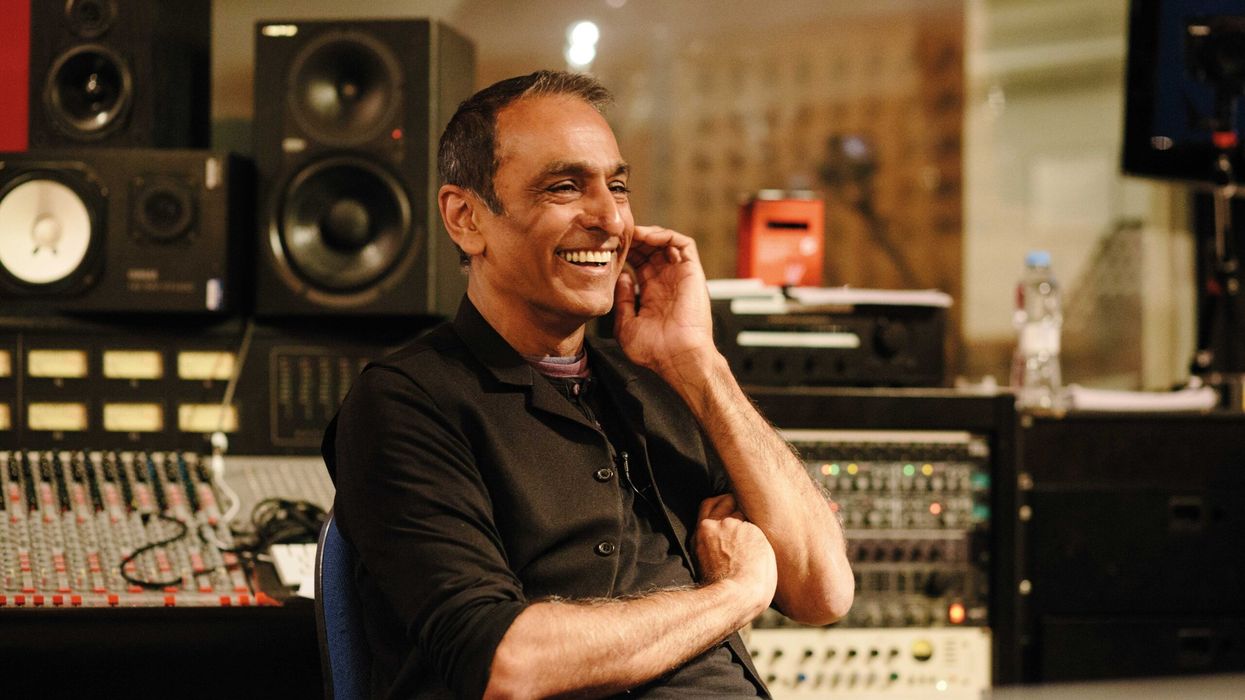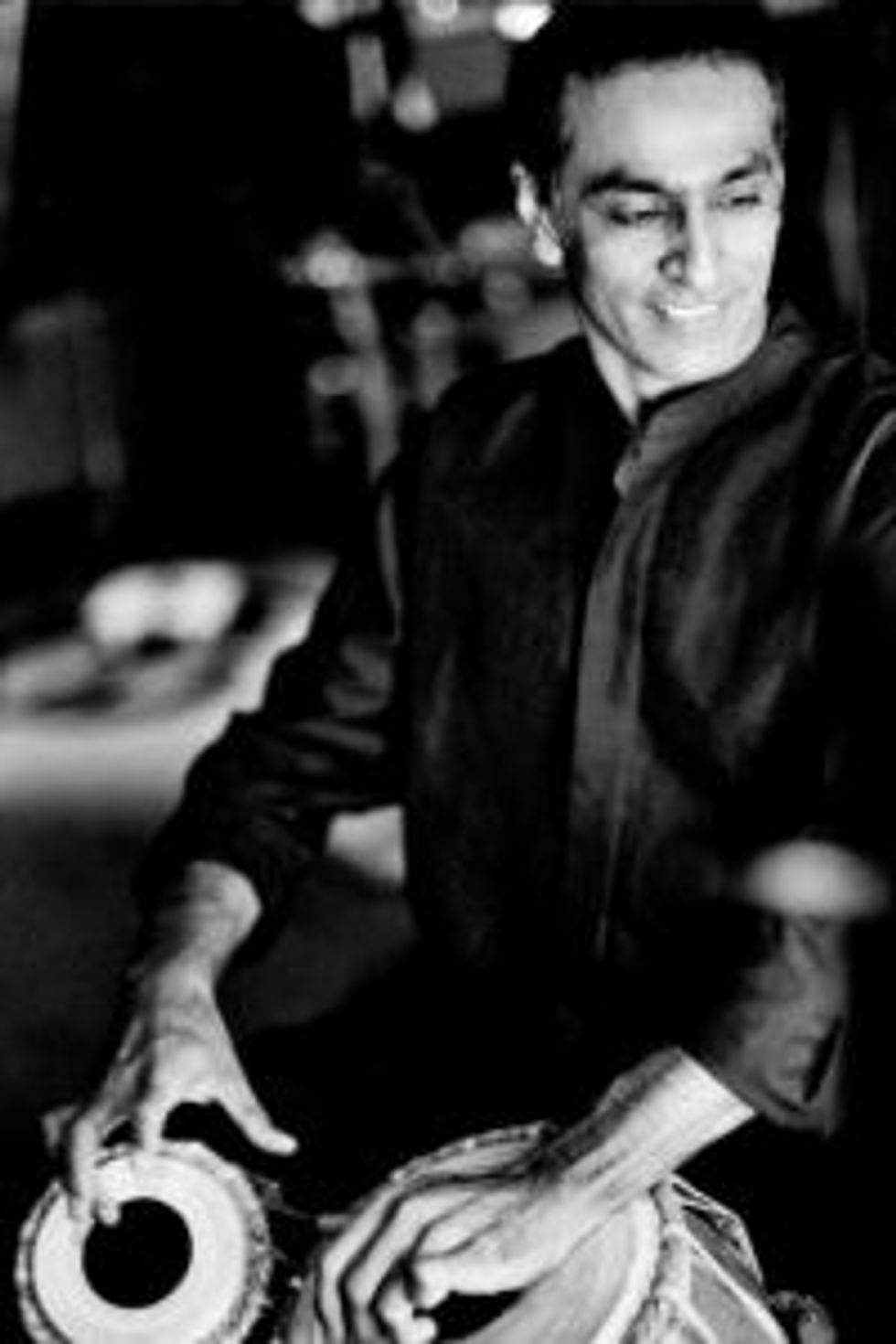BRITISH-ASIAN music icon, Kuljit Bhamra, has urged creators to produce music that was capable of “grabbing listeners’ hearts.”
Bhamra told Eastern Eye it was crucial to create something that captured attention in the first few seconds, as people had short attention spans nowadays.
“I think the way music is consumed has changed drastically. We are now bombarded by so much music and so many distractions that it is hard for music creators to get people to listen to their work. People don’t have time; they’re just on their phones, scrolling. They might listen to something for three or four seconds before moving on,” he said.
“Therefore, it’s crucial to create something that grabs attention in the first few seconds. Otherwise, nobody will listen to it. Alternatively, you need a strong marketing campaign to force people to listen to your product.”
He added, “People don’t ask, how can I make my song grab somebody’s heart? as much any more, and you can feel it in the music. Many people tell me that music has lost its soul. While computers are partly to blame, as they have changed how music is created, the real issue is how people use computers and their desire for quick results. This has destroyed a significant part of the music industry and the way music is being created.”
Bhamra is set to release his new album, Namaste Bombay, next Friday (28). The project, recorded during the Covid pandemic, is described as a “first-of-its-kind” and serves as a tribute to the music that laid the foundation for the global phenomenon of Bollywood.
According to him, Namaste Bombay is a pioneering filmi-style album produced entirely in the UK, featuring an array of British-Asian talent across its 38 tracks.
The album encapsulates the essence of Hindi film music, with dramatic, creative, and emotional compositions that showcase Bhamra’s signature flair. Western influences, including smooth jazz, Latin beats, and rock riffs, add an extra layer of richness to this musical homage. The album’s first single, Dur Dur Hum Jayenge, narrates the story of a woman embarking on a journey to distant lands, carrying only the cherished memory of her beloved. This track, performed by Rekha and written by Bhamra and Gajjar, captures the nostalgic essence of yesteryear’s golden melodies.
Rama O Rama, the album’s focus track, is a duet by Rekha and Parry Mad. The song, written by Bhamra and Nihal, tells a tale of fleeting glances and heart-fluttering moments, embodying the romantic spirit of classic filmi music.
While describing the creative process, Bhamra said, “I believe the most important aspects for me are twofold. First, having a catchy melody that people can sing and remember, which I find increasingly rare in Mumbai’s current music scene dominated by dance and performance. I aimed to capture this quality by composing melodious tunes.
“Second, incorporating live instruments into the music rather than relying solely on computer-generated sounds was crucial for me. I wanted to stress these two main qualities in my work.
“In Mumbai, I used to collaborate with Nadeem Shravan and Anu Malik during the heyday of big studios. However, those grand studios are no longer prevalent in Bombay. Nowadays, everything is produced in small studios. I wanted to draw inspiration from that period of music.”
He added that nowadays, more money was often spent on marketing than on the product itself.
“Before the era of mobile phones and the internet, we still had hit songs even if the marketing was terrible because people loved the songs. Now, it seems the focus is too much on marketing and show business rather than the music business.
“Many people contact me saying they want to make a record. When I ask if they have had any singing training, the usual answer is no, but they have their costumes and dance moves ready. They are focusing more on appearance and the show rather than the content of the music,” Bhamra said.
When asked about the changes in the Bollywood scene in the past five decades, he said, “A significant shift is that songs used to be released before the film, serving as a major promotional tool. Songs had pulling power for the film’s success. Nowadays, songs don’t hold the same importance and there’s a greater focus on sponsorships with motorbikes, watches, and other products to quickly recoup investments. Modern songs often lack the timeless quality of those from the past.
“Additionally, the advent of computers has made it easy to copy loops and create music without live musicians, leading to less work for many musicians who used to play live. Instead of employing 20 violins, people now use keyboards, which, while not necessarily bad, in my opinion, results in the loss of the music’s soul.”
Bhamra, who is professor of tabla, Indian rhythm and improvisation at Guildhall School of Music and Drama, London, revealed how the pandemic helped him to produce the album with so many songs.
“Initially the plan was to record around 10 songs. However, when the pandemic hit and we went into lockdown, I found myself with more time. I have a large recording studio in my house, so I decided to compile all my ideas. This led me to record 38 songs, as I got carried away with the process. I saw this as an opportunity to work with all my favourite singers from London and decided to create a full twoCD album with 38 tracks.
“Due to the lockdown, we couldn’t meet in person initially. I telephoned the singers, discussed their vocal ranges, and sang a bit over the phone. I then worked on the music sketches myself, which took a considerable amount of time.
“I had about 100 songs to choose from, narrowed it down to 40, and eventually finalised 38 tracks. After a few months of lockdown, when ‘bubbles’ were allowed, we could meet in person under specific rules. I invited the musicians and singers one by one to record in my studio,” he said.
“The project began in 2020 and took almost four years to complete. It was a wonderful feeling to finally release the project and allow people to listen to it. The lack of a strict deadline due to the pandemic allowed me to perfect the production to a higher level than before. While deadlines are good for ensuring completion, the extra time allowed me to correct mistakes and refine the album thoroughly.”
The British composer, record producer, and musician said his childhood played an important role in his music career.
“I came to the UK in the early 1960s. We loved going to the cinema before the internet and cable television. All the Indian people in England would go to watch Hindi films. The cinemas served samosas instead of popcorn. We went every weekend to watch the latest film.
“I remember all those eternal songs from artists like Kishore Kumar, Lata Mangeshkar, and Mukesh. They had a timeless quality. In contrast, today’s songs don’t linger in your mind because there’s too much information and distraction from the internet and cable TV. The 1960s to 1980s was a special time for music because it was created with a lot of love, unlike today’s music which often lacks that depth.”
He added, “I was brought up in a musical family and learned to play the tabla on my own. We had a family band, and I enjoyed music created with live bands or orchestras. My father wanted me to follow an academic career rather than music, as it wasn’t seen as a viable profession.
“Even today, some people think musicians live hand-to-mouth. However, you can make a good living if you’re talented. Although I loved music, my parents didn’t let me pursue it until later in life. I only became a full-time musician in my early 30s, leaving my job as an engineer.”
In terms of future projects, Bhamra will start work on a bhangra album soon. He will also devote more time to his company, Keda Music.
The team recently returned from Mumbai, India, where they held an inaugural launch event for Tabla Touch, their range of electronic tabla. The company just received a UK Innovate Grant from the government for the project.
Bhamra is also busy performing worldwide and enjoys playing in cross-cultural bands with musicians and instruments who don’t normally play together.





